Animals
-
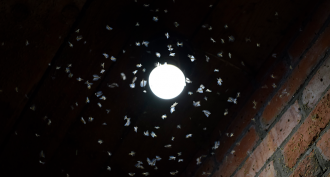 Environment
EnvironmentLight pollution can foil plant-insect hookups
An experiment in remote European meadows shows that light pollution at night can affect the pollination of flowers — even into sunlight hours.
By Susan Milius -
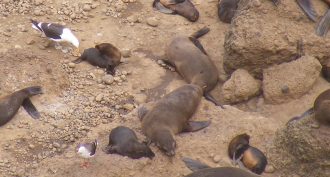 Animals
AnimalsPoop-eating gulls can be pain in the butt for seal pups
The birds can harm baby fur seals as they try to dine on fresh parasites in the pups’ feces.
-
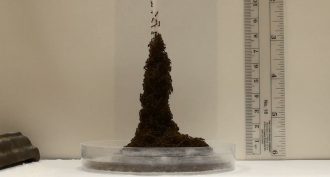 Animals
AnimalsThree simple rules guide fire ants in building towers
Fire ants build towers of ants to protect themselves during a flood. New research reveals the simple rules that guide how they do this, no foreman needed.
-
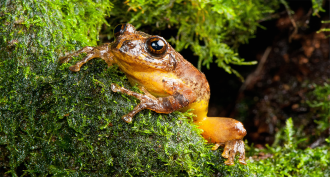 Ecosystems
EcosystemsAs trees come down, some hidden homes are disappearing
Animals such as frogs, toucans and possums live in tree hollows. But as people have cut down trees, a wildlife housing shortage has developed in some places.
By Roberta Kwok -
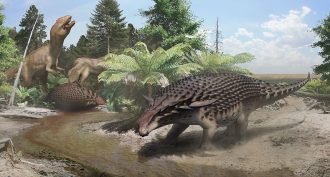 Fossils
FossilsCamo might have helped this armored dinosaur avoid becoming lunch
An armored dinosaur the size of a Japanese sedan also wore camouflage, a new analysis of its skin suggests.
-
 Animals
AnimalsWhales feast when hatcheries release salmon
Humpback whales are visiting sites where hatcheries release juvenile salmon in Alaska. It’s a dining bonanza for the huge whales.
By Susan Milius -
 Animals
AnimalsScientists Say: Dire wolf
Dire wolves are an extinct species of wolf that roamed North America from about 300,000 to 12,000 years ago.
-
 Animals
AnimalsThese sharks get help swallowing from their shoulders
Some sharks suck in food by snapping open their jaws. But to gulp it all the way down, they’ve got to give their shoulders a workout.
-
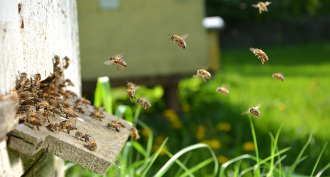 Animals
AnimalsWhat do animals do during a solar eclipse?
A citizen-science experiment used the Great American Eclipse of 2017 to gather the largest dataset ever of animal responses to a sun-block.
-
 Animals
AnimalsGiant Antarctic sea spiders breathe really strangely
Sea spiders have many bizarre body systems. Scientists have now discovered that they breathe and circulate oxygen in a way never seen before.
By Ilima Loomis -
 Animals
AnimalsThis tiny animal is apocalypse-proof
Microscopic animals called water bears can survive nearly any kind of apocalypse, from asteroids and nuclear war to exploding stars.
-
 Animals
AnimalsHumpbacks flap their flippers like underwater birds
Surprising new video shows humpback whales flapping their front flippers to move their massive bodies toward their prey.